The Beginner's Guide to Coding: Where to Start and How to Begin Your Coding Journey
Unlock the world of coding with "The Beginner's Guide to Coding." Discover where to start, popular programming languages, online resources, learning paths, and hands-on practice. This comprehensive article equips you with the essential knowledge to begin your coding journey. Combined with my previous article on "Why We Should Learn Coding?" readers will have a complete understanding of why and how to embark on this exciting path of coding proficiency.
1. Understanding the Basics: What is Coding and Why Learn to Code?

Coding, also known as programming, is the process of creating computer software, applications, or websites by writing instructions in a specific programming language. These languages, such as Python, Java, or C++, enable humans to communicate with computers and tell them what to do.
Learning to code is essential for various reasons. Firstly, coding allows you to develop problem-solving skills and logical thinking capabilities. By breaking down complex issues into smaller components and finding solutions, you train your brain to think critically and systematically.
Secondly, coding knowledge opens up job opportunities in the ever-growing technology industry. With the digital world expanding rapidly, skilled programmers are in high demand across numerous sectors, from entertainment to finance.
Additionally, learning to code fosters creativity and innovation. Coding enables you to build your practical applications or tools from scratch, tailored to specific needs or ideas. This way, you can contribute to technological advancements that benefit society.
Lastly, coding promotes self-sufficiency in the digital age. Understanding how software works empowers you to fix technical issues independently or customize existing tools for personal usage.
In summary, coding refers to writing instructions in a programming language for a computer to follow. Learning to code enhances problem-solving abilities, increases career prospects potential for innovation while fostering autonomy in a technology-driven world.
2. Choosing a Programming Language: Exploring Popular Options and Their Applications

Choosing the right programming language depends on your goals, project requirements, and personal preferences. Here, we explore some popular programming languages and their applications.
1. Python: Known for its simplicity and readability, Python is a great choice for beginners. It is widely used in web development, data analysis, artificial intelligence, and scientific computing.
2. JavaScript: As the backbone of web development, JavaScript is essential for creating interactive websites. With Node.js, it can also be used for server-side programming.
3. Java: A highly portable and versatile language, Java powers numerous enterprise applications and Android app development.
4. C#: Developed by Microsoft, C# is prominent in developing Windows applications, video games (with Unity), and enterprise solutions.
5. Ruby: Favored for its elegant syntax, Ruby is ideal for web development through the Ruby on Rails framework.
6. PHP: Predominantly used in web development, PHP powers content management systems like WordPress.
7. Swift: Designed by Apple as a successor to Objective-C, Swift is the primary language for iOS app development.
8. Kotlin: Fully compatible with Java codebases but offering improved syntax and features, Kotlin is quickly gaining popularity in Android app development.
When choosing a language, consider factors such as learning curve, community support, available resources, and job market before making a decision.
3. Online Coding Platforms and Resources: Finding the Right Learning Environment

Online Coding Platforms and Resources: Finding the Right Learning Environment
Finding the right learning environment for coding can greatly impact your learning experience and success. To find the most suitable platform or resource, consider your learning preferences, goals, and available time.
1. Learning preferences: Do you learn better through visual tutorials, hands-on projects, or structured courses? Identify your preferred learning style to narrow down the platforms that cater to those needs.
2. Goals: Determine your coding objectives, such as mastering a specific language, building projects, or preparing for interviews. This will help you choose a platform offering relevant content and resources.
3. Available time: Evaluate how much time you can dedicate to learning. Some platforms offer self-paced courses, while others follow a rigorous schedule.
Popular online coding platforms/resources:
- FreeCodeCamp: Offers interactive coding challenges and projects to build your portfolio.
- Codecademy: Provides interactive lessons and projects with a focus on web development.
- Coursera & edX: Offer structured courses by top universities for deeper understanding of computer science concepts.
- LeetCode & HackerRank: Help practice coding problems to boost interview preparation.
- GitHub & GitLab: Encourage collaboration on open-source projects for real-world experience.
In summary, finding the right online coding platform or resource depends on your learning preferences, goals, and time commitment. Explore multiple options to discover what works best for you in your coding journey.
4. Learning Paths and Curriculum: Structured Approaches to Learning Coding

Learning paths and curriculum are structured approaches to learning coding, designed to guide learners through a progressive journey from fundamental concepts to advanced techniques. By following a well-organized learning path, individuals can master coding languages and frameworks efficiently.
The first step in a structured learning approach is understanding the basics of programming languages like Python, JavaScript, or C++. This involves learning about variables, data types, loops, conditional statements, and functions. As learners become proficient in these core concepts, they can move on to more advanced topics like object-oriented programming and exceptions handling.
Next, they can choose a specific domain like web development, data science, or mobile app development, and learn relevant technologies. For instance, aspiring web developers should study HTML/CSS for front-end design and JavaScript/Node.js for back-end scripting. Data scientists should grasp concepts like data manipulation and visualization using Python/R libraries and machine-learning algorithms.
Following this, learners can focus on mastering popular frameworks and libraries within their chosen domain. For example, web developers might learn React.js or Angular for creating dynamic user interfaces or Django/Flask for building server-side applications.
Throughout this process, it's essential to engage in hands-on projects that allow learners to apply their skills while building a portfolio of work. By participating in hackathons, contributing to open-source projects or building custom software solutions, learners can demonstrate their proficiency and increase their employability.
To sum up: A structured approach to learning coding involves progressing from fundamental programming concepts to domain-specific technologies and frameworks while engaging in hands-on experiences that showcase one's skills.
5. Building a Foundation: Essential Concepts and Skills for Beginners
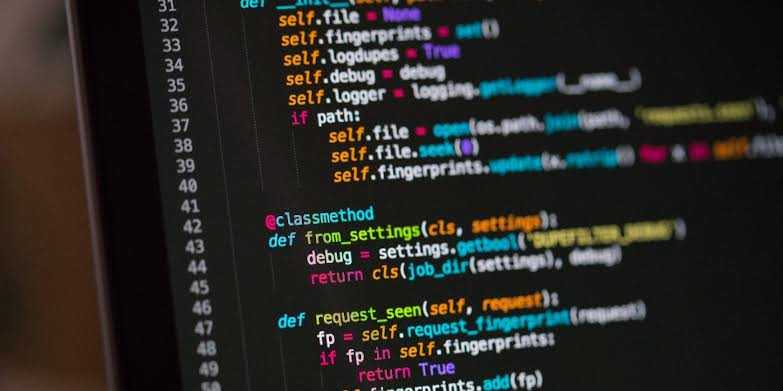
Building a strong foundation in any field is crucial for beginners. In this context, we will discuss essential concepts and skills that every beginner should know.
1. Identify Your Passion: Determine the area you want to focus on, whether it's programming, web development, or data science.
2. Gain Basic Knowledge: Learn the fundamentals of your chosen field, such as basic algorithms, data structures, and programming languages.
3. Practice Problem Solving: Improve your problem-solving skills by working on diverse projects and exercises.
4. Learn From Others: Connect with professionals in your field to gain insights and valuable advice.
5. Stay Updated: Keep pace with the latest trends and technologies to avoid becoming outdated.
6. Develop Soft Skills: Improve your communication, teamwork, and time management abilities.
7. Set Realistic Goals: Create attainable short-term and long-term objectives for yourself.
8. Embrace Failure: Learn from mistakes and turn failures into opportunities for growth.
9. Seek Feedback: Request constructive analysis from peers or mentors to enhance your skills further.
10. Stay Persistent: Consistently work towards achieving your goals to strengthen your foundation over time.
By following these essential concepts and skills, beginners can build a robust foundation that will serve as a launchpad for future success in their chosen fields.
6. Hands-On Practice: Coding Exercises and Projects for Skill Development

Developing coding skills requires engaging in hands-on practice through coding exercises and projects. This helps you gain a deep understanding of programming concepts and improve your problem-solving abilities.
1. Coding exercises: Start by practicing coding exercises, which are small tasks that focus on specific programming concepts or principles. You can find these on platforms like LeetCode, HackerRank, or Codewars. Regularly participating in coding challenges will help you sharpen your skills and give you exposure to various programming languages.
2. Projects: Once you are comfortable with coding exercises, move on to building projects. Projects allow you to explore real-world applications of programming concepts and integrate multiple techniques to create a functional product. They can range from simple applications, like a calculator or a to-do list app, to more complex projects such as a weather app, e-commerce website, or even a machine learning model.
Working on projects is an excellent way to strengthen your portfolio and showcase your abilities to employers or clients. As you progress through different projects, start contributing to open-source projects on platforms like GitHub. This will not only improve your technical skills but also help you develop collaboration and communication abilities essential for working in professional environments.
In conclusion, regularly engaging in both coding exercises and working on diverse projects is essential for skill development in programming. These activities will provide deep insights into various programming paradigms while also helping you become an efficient problem solver in the world of software development.
7. Seeking Guidance: Tapping into Coding Communities and Forums

Tapping into coding communities and forums is a great way to seek guidance, learn new skills, and network with like-minded individuals. To get started:
1. Identify the programming languages or technologies you're interested in, as this will help you find relevant forums.
2. Join popular platforms such as Stack Overflow, Reddit, GitHub, or specialized community forums like Codecademy Discuss or LeetCode Community.
3. Search for existing discussions related to your questions, as it's likely someone has already asked or answered them. If not, create a new thread.
4. Be respectful and patient when asking for help. Provide necessary details about your issue, code samples (if applicable), and specify what you're looking to achieve.
5. Contribute back to the community by answering others' questions or sharing your knowledge and experiences.
6. Engage in meaningful conversations and participate in events such as hackathons, workshops, or webinars to build relationships and expand your network.
7. Follow influential programmers or developers on social media to stay updated with new technologies and best practices.
By immersing yourself in coding communities and forums, you'll gain valuable insights while growing professionally alongside fellow tech enthusiasts.
8. Online Coding Courses and Bootcamps: Accelerating Your Learning Journey

Online coding courses and bootcamps have revolutionized the way we learn programming, offering a more interactive and immersive approach. They are designed to help you quickly pick up coding skills by engaging in hands-on projects and real-life scenarios. By combining theory, practical exercises, and mentorship, these online platforms provide a powerful learning experience.
Coding bootcamps focus on intensive training sessions that span from a few weeks to several months, simulating a real work environment, which accelerates your learning journey. The curriculum often covers popular programming languages such as Python, JavaScript, and Ruby, along with essential tools like Git and frameworks like React or Django.
Online coding courses allow learners to grasp concepts at their own pace and are ideal for those who balance work or other commitments. Some popular platforms include Coursera, Udacity, and Codecademy.
In conclusion, these online coding courses and bootcamps empower individuals with the skills necessary to excel in the tech industry. They cater to learners of all levels of experience, allowing for flexible learning paths that can be tailored to fit individual needs and goals. If you're looking to advance your coding skills or kickstart a career in software development or data science, consider exploring these online resources for an efficient learning acceleration process.
9. Building Real-World Projects: Applying Coding Skills to Create Practical Solutions

Building real-world projects allows you to apply your coding skills to create practical solutions for everyday problems. This process involves identifying a problem or need, using your programming knowledge to develop a solution, and then implementing, testing, and refining it until it effectively addresses the issue.
By working on real-world projects, you can enhance your coding abilities, learn new programming languages, and gain valuable experience in project management. Moreover, such projects help you build a strong portfolio that showcases your skills to potential employers and clients.
In addition to developing technical expertise, building real-world projects cultivates essential soft skills like communication, collaboration, and critical thinking. These qualities enable you to navigate complex challenges and adapt to changing situations in the world of programming.
Examples of real-world projects that can help you apply your coding skills include:
1. Building web applications - Use modern web development tools like HTML5, CSS3, JavaScript, or Python to create responsive websites or applications tailored to users' needs.
2. Creating mobile applications - Develop user-friendly native or cross-platform apps for iOS, Android or both using technologies such as Swift, Java or React Native.
3. Developing data analytics tools - Leverage data manipulation and visualization libraries in Python or R for analyzing complex data sets and creating insightful reports.
4. Implementing machine learning algorithms - Apply machine learning techniques with tools like TensorFlow or PyTorch to teach computers to make decisions based on large volumes of data.
5. Building IoT devices - Combine software with hardware devices like Arduino or Raspberry Pi to automate simple tasks or design futuristic smart home gadgets.
In conclusion, applying coding skills in real-world projects helps you reinforce your programming knowledge while delivering practical solutions for various industries. This not only enhances your career prospects but also equips you with essential soft skills for success in the tech world.
10. Continuing Your Coding Journey: Resources for Ongoing Learning and Growth
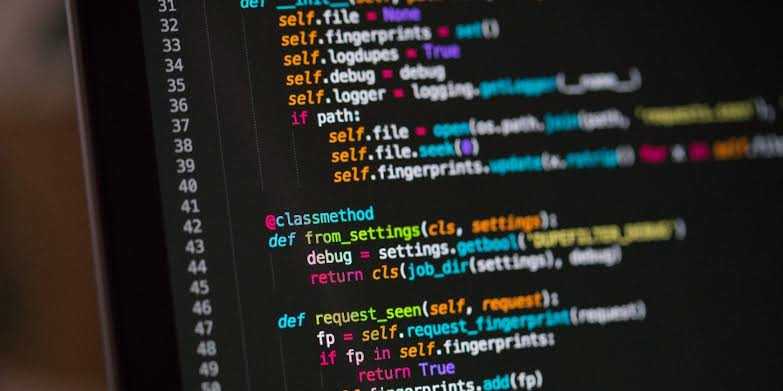
Continuing your coding journey involves exploring various resources to enhance your skills and stay updated with the latest trends. Here are some suggestions for ongoing learning and growth:
1. Online Courses: Platforms like Coursera, Udacity, and edX offer courses on programming languages, data structures, algorithms, and more.
2. Coding Bootcamps: Join a coding bootcamp like Le Wagon or General Assembly to get hands-on experience and guidance in a structured environment.
3. Books: Books such as "Clean Code" by Robert C. Martin or "You Don't Know JS" by Kyle Simpson can deepen your understanding of programming concepts.
4. YouTube Channels: Follow channels like Traversy Media or The Net Ninja to get video tutorials and development tips.
5. Coding Challenges: Websites like LeetCode, HackerRank, or Codewars provide problem-solving tasks that help sharpen your abilities.
6. Podcasts: Listen to podcasts like Syntax, Software Engineering Daily, or Coding Blocks for industry updates and developer insights.
7. GitHub Repositories: Explore open-source projects and collaborate with other developers to improve your coding skills.
8. Coding Communities: Join programming communities like Stack Overflow, Reddit (e.g., r/learnprogramming), or Developer Slack Groups for discussions, advice, and support.
9. Stay Updated: Read developer blogs such as A List Apart, CSS-Tricks, or Smashing Magazine to stay informed about new developments in technology.
10. Personal Projects: Work on side projects that interest you to apply what you've learned and explore new technologies or concepts.
Conclusion :
In conclusion, by exploring the article on "The Beginner's Guide to Coding" alongside the insights provided in the previous article on the benefits of learning coding, readers now have a holistic understanding of why coding is valuable and where to start. Armed with this knowledge, individuals can confidently begin their coding journey, embracing the countless opportunities and rewards that come with mastering this essential skill in today's digital age.
Unlock the world of coding with "The Beginner's Guide to Coding." Discover where to start, popular programming languages, online resources, learning paths, and hands-on practice. This comprehensive article equips you with the essential knowledge to begin your coding journey. Combined with my previous article on "Why We Should Learn Coding?" readers will have a complete understanding of why and how to embark on this exciting path of coding proficiency.
1. Understanding the Basics: What is Coding and Why Learn to Code?

Coding, also known as programming, is the process of creating computer software, applications, or websites by writing instructions in a specific programming language. These languages, such as Python, Java, or C++, enable humans to communicate with computers and tell them what to do. Learning to code is essential for various reasons. Firstly, coding allows you to develop problem-solving skills and logical thinking capabilities. By breaking down complex issues into smaller components and finding solutions, you train your brain to think critically and systematically. Secondly, coding knowledge opens up job opportunities in the ever-growing technology industry. With the digital world expanding rapidly, skilled programmers are in high demand across numerous sectors, from entertainment to finance. Additionally, learning to code fosters creativity and innovation. Coding enables you to build your practical applications or tools from scratch, tailored to specific needs or ideas. This way, you can contribute to technological advancements that benefit society. Lastly, coding promotes self-sufficiency in the digital age. Understanding how software works empowers you to fix technical issues independently or customize existing tools for personal usage. In summary, coding refers to writing instructions in a programming language for a computer to follow. Learning to code enhances problem-solving abilities, increases career prospects potential for innovation while fostering autonomy in a technology-driven world.
2. Choosing a Programming Language: Exploring Popular Options and Their Applications

Choosing the right programming language depends on your goals, project requirements, and personal preferences. Here, we explore some popular programming languages and their applications. 1. Python: Known for its simplicity and readability, Python is a great choice for beginners. It is widely used in web development, data analysis, artificial intelligence, and scientific computing. 2. JavaScript: As the backbone of web development, JavaScript is essential for creating interactive websites. With Node.js, it can also be used for server-side programming. 3. Java: A highly portable and versatile language, Java powers numerous enterprise applications and Android app development. 4. C#: Developed by Microsoft, C# is prominent in developing Windows applications, video games (with Unity), and enterprise solutions. 5. Ruby: Favored for its elegant syntax, Ruby is ideal for web development through the Ruby on Rails framework. 6. PHP: Predominantly used in web development, PHP powers content management systems like WordPress. 7. Swift: Designed by Apple as a successor to Objective-C, Swift is the primary language for iOS app development. 8. Kotlin: Fully compatible with Java codebases but offering improved syntax and features, Kotlin is quickly gaining popularity in Android app development. When choosing a language, consider factors such as learning curve, community support, available resources, and job market before making a decision.
3. Online Coding Platforms and Resources: Finding the Right Learning Environment

Online Coding Platforms and Resources: Finding the Right Learning Environment Finding the right learning environment for coding can greatly impact your learning experience and success. To find the most suitable platform or resource, consider your learning preferences, goals, and available time. 1. Learning preferences: Do you learn better through visual tutorials, hands-on projects, or structured courses? Identify your preferred learning style to narrow down the platforms that cater to those needs. 2. Goals: Determine your coding objectives, such as mastering a specific language, building projects, or preparing for interviews. This will help you choose a platform offering relevant content and resources. 3. Available time: Evaluate how much time you can dedicate to learning. Some platforms offer self-paced courses, while others follow a rigorous schedule. Popular online coding platforms/resources: - FreeCodeCamp: Offers interactive coding challenges and projects to build your portfolio. - Codecademy: Provides interactive lessons and projects with a focus on web development. - Coursera & edX: Offer structured courses by top universities for deeper understanding of computer science concepts. - LeetCode & HackerRank: Help practice coding problems to boost interview preparation. - GitHub & GitLab: Encourage collaboration on open-source projects for real-world experience. In summary, finding the right online coding platform or resource depends on your learning preferences, goals, and time commitment. Explore multiple options to discover what works best for you in your coding journey.
4. Learning Paths and Curriculum: Structured Approaches to Learning Coding

Learning paths and curriculum are structured approaches to learning coding, designed to guide learners through a progressive journey from fundamental concepts to advanced techniques. By following a well-organized learning path, individuals can master coding languages and frameworks efficiently. The first step in a structured learning approach is understanding the basics of programming languages like Python, JavaScript, or C++. This involves learning about variables, data types, loops, conditional statements, and functions. As learners become proficient in these core concepts, they can move on to more advanced topics like object-oriented programming and exceptions handling. Next, they can choose a specific domain like web development, data science, or mobile app development, and learn relevant technologies. For instance, aspiring web developers should study HTML/CSS for front-end design and JavaScript/Node.js for back-end scripting. Data scientists should grasp concepts like data manipulation and visualization using Python/R libraries and machine-learning algorithms. Following this, learners can focus on mastering popular frameworks and libraries within their chosen domain. For example, web developers might learn React.js or Angular for creating dynamic user interfaces or Django/Flask for building server-side applications. Throughout this process, it's essential to engage in hands-on projects that allow learners to apply their skills while building a portfolio of work. By participating in hackathons, contributing to open-source projects or building custom software solutions, learners can demonstrate their proficiency and increase their employability. To sum up: A structured approach to learning coding involves progressing from fundamental programming concepts to domain-specific technologies and frameworks while engaging in hands-on experiences that showcase one's skills.
5. Building a Foundation: Essential Concepts and Skills for Beginners

Building a strong foundation in any field is crucial for beginners. In this context, we will discuss essential concepts and skills that every beginner should know. 1. Identify Your Passion: Determine the area you want to focus on, whether it's programming, web development, or data science. 2. Gain Basic Knowledge: Learn the fundamentals of your chosen field, such as basic algorithms, data structures, and programming languages. 3. Practice Problem Solving: Improve your problem-solving skills by working on diverse projects and exercises. 4. Learn From Others: Connect with professionals in your field to gain insights and valuable advice. 5. Stay Updated: Keep pace with the latest trends and technologies to avoid becoming outdated. 6. Develop Soft Skills: Improve your communication, teamwork, and time management abilities. 7. Set Realistic Goals: Create attainable short-term and long-term objectives for yourself. 8. Embrace Failure: Learn from mistakes and turn failures into opportunities for growth. 9. Seek Feedback: Request constructive analysis from peers or mentors to enhance your skills further. 10. Stay Persistent: Consistently work towards achieving your goals to strengthen your foundation over time. By following these essential concepts and skills, beginners can build a robust foundation that will serve as a launchpad for future success in their chosen fields.
6. Hands-On Practice: Coding Exercises and Projects for Skill Development

Developing coding skills requires engaging in hands-on practice through coding exercises and projects. This helps you gain a deep understanding of programming concepts and improve your problem-solving abilities. 1. Coding exercises: Start by practicing coding exercises, which are small tasks that focus on specific programming concepts or principles. You can find these on platforms like LeetCode, HackerRank, or Codewars. Regularly participating in coding challenges will help you sharpen your skills and give you exposure to various programming languages. 2. Projects: Once you are comfortable with coding exercises, move on to building projects. Projects allow you to explore real-world applications of programming concepts and integrate multiple techniques to create a functional product. They can range from simple applications, like a calculator or a to-do list app, to more complex projects such as a weather app, e-commerce website, or even a machine learning model. Working on projects is an excellent way to strengthen your portfolio and showcase your abilities to employers or clients. As you progress through different projects, start contributing to open-source projects on platforms like GitHub. This will not only improve your technical skills but also help you develop collaboration and communication abilities essential for working in professional environments. In conclusion, regularly engaging in both coding exercises and working on diverse projects is essential for skill development in programming. These activities will provide deep insights into various programming paradigms while also helping you become an efficient problem solver in the world of software development.
7. Seeking Guidance: Tapping into Coding Communities and Forums

Tapping into coding communities and forums is a great way to seek guidance, learn new skills, and network with like-minded individuals. To get started: 1. Identify the programming languages or technologies you're interested in, as this will help you find relevant forums. 2. Join popular platforms such as Stack Overflow, Reddit, GitHub, or specialized community forums like Codecademy Discuss or LeetCode Community. 3. Search for existing discussions related to your questions, as it's likely someone has already asked or answered them. If not, create a new thread. 4. Be respectful and patient when asking for help. Provide necessary details about your issue, code samples (if applicable), and specify what you're looking to achieve. 5. Contribute back to the community by answering others' questions or sharing your knowledge and experiences. 6. Engage in meaningful conversations and participate in events such as hackathons, workshops, or webinars to build relationships and expand your network. 7. Follow influential programmers or developers on social media to stay updated with new technologies and best practices. By immersing yourself in coding communities and forums, you'll gain valuable insights while growing professionally alongside fellow tech enthusiasts.
8. Online Coding Courses and Bootcamps: Accelerating Your Learning Journey

Online coding courses and bootcamps have revolutionized the way we learn programming, offering a more interactive and immersive approach. They are designed to help you quickly pick up coding skills by engaging in hands-on projects and real-life scenarios. By combining theory, practical exercises, and mentorship, these online platforms provide a powerful learning experience. Coding bootcamps focus on intensive training sessions that span from a few weeks to several months, simulating a real work environment, which accelerates your learning journey. The curriculum often covers popular programming languages such as Python, JavaScript, and Ruby, along with essential tools like Git and frameworks like React or Django. Online coding courses allow learners to grasp concepts at their own pace and are ideal for those who balance work or other commitments. Some popular platforms include Coursera, Udacity, and Codecademy. In conclusion, these online coding courses and bootcamps empower individuals with the skills necessary to excel in the tech industry. They cater to learners of all levels of experience, allowing for flexible learning paths that can be tailored to fit individual needs and goals. If you're looking to advance your coding skills or kickstart a career in software development or data science, consider exploring these online resources for an efficient learning acceleration process.
9. Building Real-World Projects: Applying Coding Skills to Create Practical Solutions

Building real-world projects allows you to apply your coding skills to create practical solutions for everyday problems. This process involves identifying a problem or need, using your programming knowledge to develop a solution, and then implementing, testing, and refining it until it effectively addresses the issue. By working on real-world projects, you can enhance your coding abilities, learn new programming languages, and gain valuable experience in project management. Moreover, such projects help you build a strong portfolio that showcases your skills to potential employers and clients. In addition to developing technical expertise, building real-world projects cultivates essential soft skills like communication, collaboration, and critical thinking. These qualities enable you to navigate complex challenges and adapt to changing situations in the world of programming. Examples of real-world projects that can help you apply your coding skills include: 1. Building web applications - Use modern web development tools like HTML5, CSS3, JavaScript, or Python to create responsive websites or applications tailored to users' needs. 2. Creating mobile applications - Develop user-friendly native or cross-platform apps for iOS, Android or both using technologies such as Swift, Java or React Native. 3. Developing data analytics tools - Leverage data manipulation and visualization libraries in Python or R for analyzing complex data sets and creating insightful reports. 4. Implementing machine learning algorithms - Apply machine learning techniques with tools like TensorFlow or PyTorch to teach computers to make decisions based on large volumes of data. 5. Building IoT devices - Combine software with hardware devices like Arduino or Raspberry Pi to automate simple tasks or design futuristic smart home gadgets. In conclusion, applying coding skills in real-world projects helps you reinforce your programming knowledge while delivering practical solutions for various industries. This not only enhances your career prospects but also equips you with essential soft skills for success in the tech world.
10. Continuing Your Coding Journey: Resources for Ongoing Learning and Growth

Continuing your coding journey involves exploring various resources to enhance your skills and stay updated with the latest trends. Here are some suggestions for ongoing learning and growth: 1. Online Courses: Platforms like Coursera, Udacity, and edX offer courses on programming languages, data structures, algorithms, and more. 2. Coding Bootcamps: Join a coding bootcamp like Le Wagon or General Assembly to get hands-on experience and guidance in a structured environment. 3. Books: Books such as "Clean Code" by Robert C. Martin or "You Don't Know JS" by Kyle Simpson can deepen your understanding of programming concepts. 4. YouTube Channels: Follow channels like Traversy Media or The Net Ninja to get video tutorials and development tips. 5. Coding Challenges: Websites like LeetCode, HackerRank, or Codewars provide problem-solving tasks that help sharpen your abilities. 6. Podcasts: Listen to podcasts like Syntax, Software Engineering Daily, or Coding Blocks for industry updates and developer insights. 7. GitHub Repositories: Explore open-source projects and collaborate with other developers to improve your coding skills. 8. Coding Communities: Join programming communities like Stack Overflow, Reddit (e.g., r/learnprogramming), or Developer Slack Groups for discussions, advice, and support. 9. Stay Updated: Read developer blogs such as A List Apart, CSS-Tricks, or Smashing Magazine to stay informed about new developments in technology. 10. Personal Projects: Work on side projects that interest you to apply what you've learned and explore new technologies or concepts. Conclusion : In conclusion, by exploring the article on "The Beginner's Guide to Coding" alongside the insights provided in the previous article on the benefits of learning coding, readers now have a holistic understanding of why coding is valuable and where to start. Armed with this knowledge, individuals can confidently begin their coding journey, embracing the countless opportunities and rewards that come with mastering this essential skill in today's digital age.

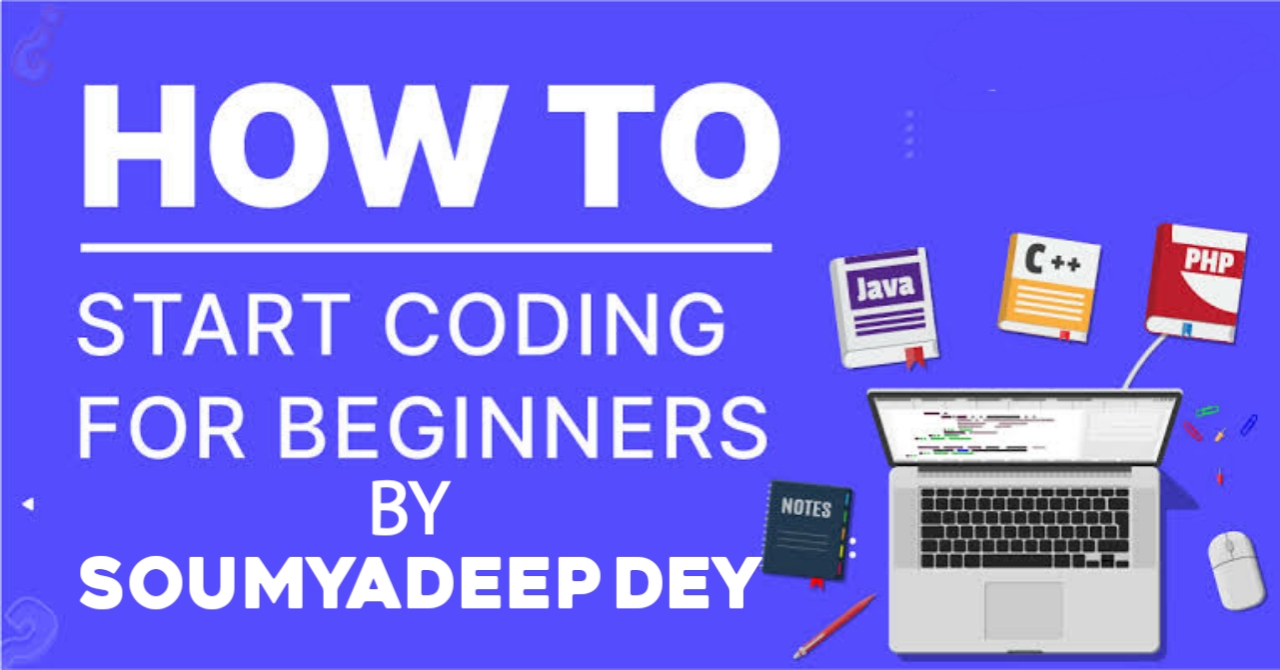





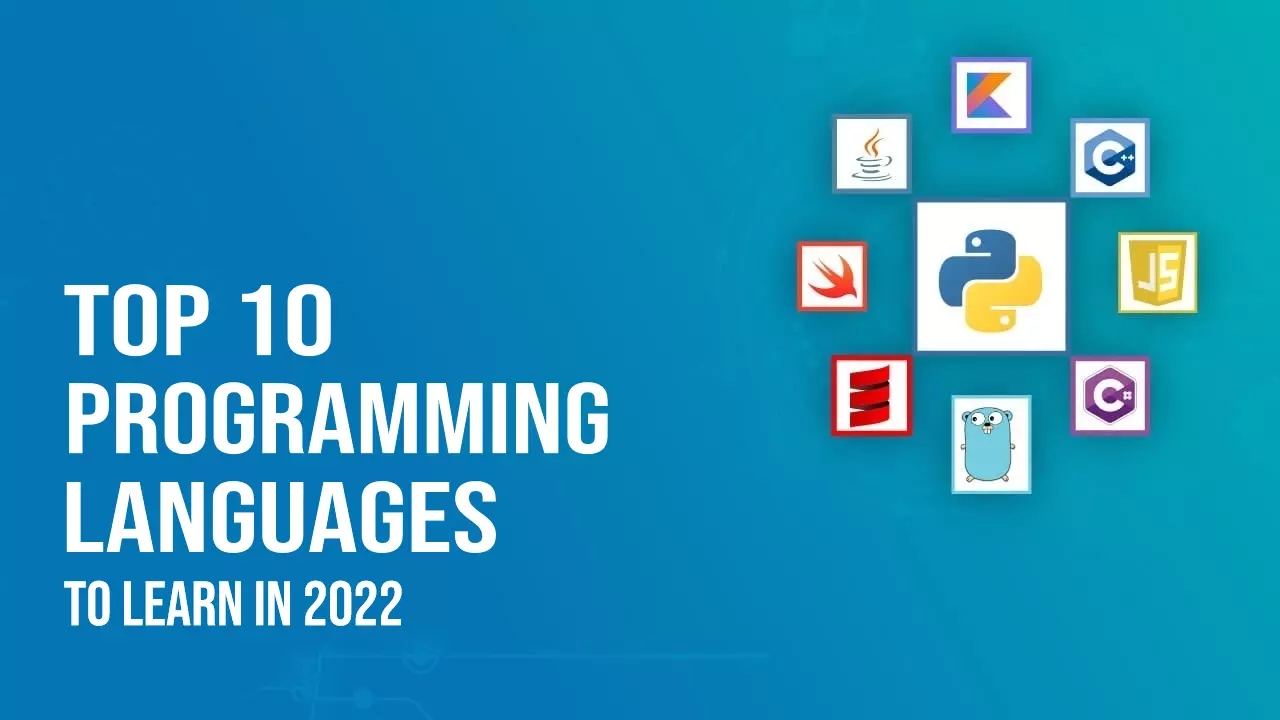




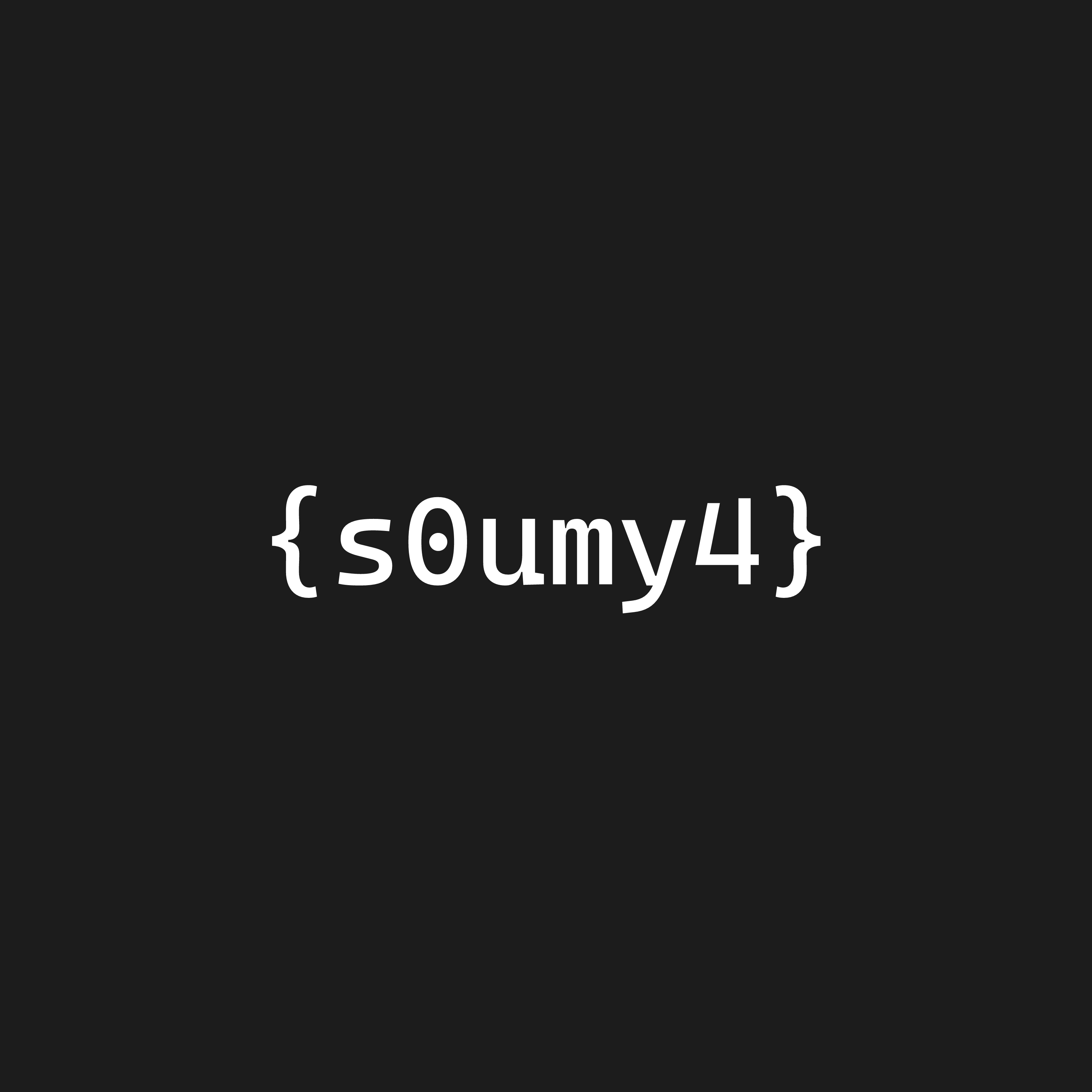







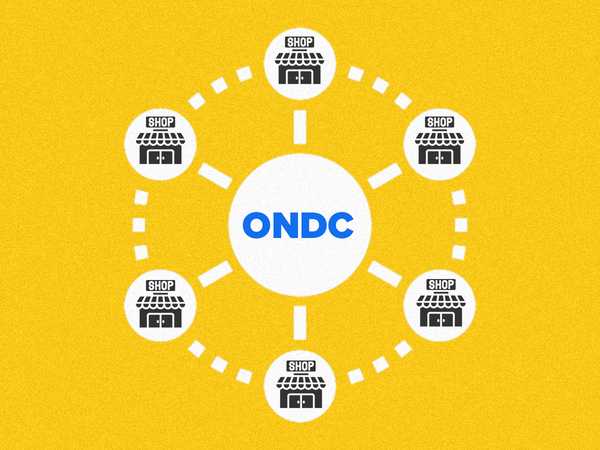
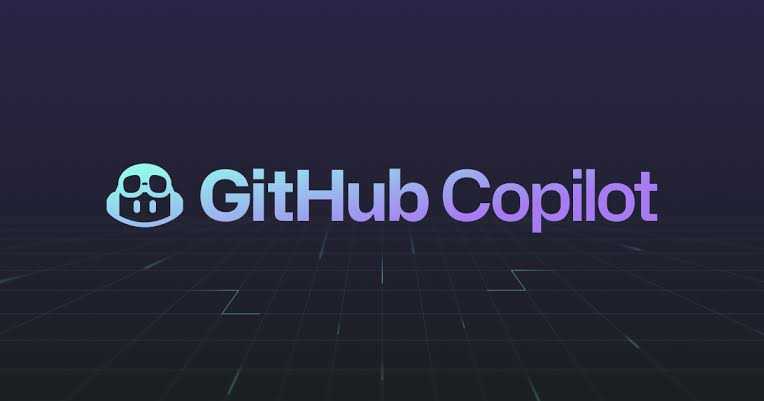

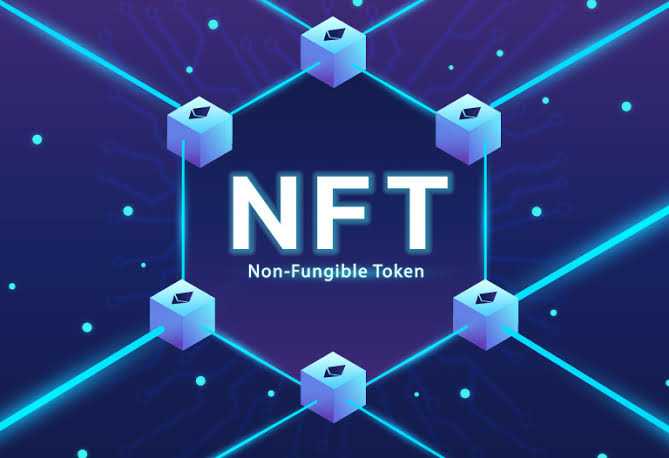

Login to your account or create a new account to post comments!